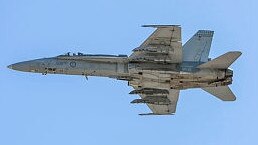
That’s very good. Washington is more committed to our security.
But, more quietly, we retired a huge chunk of our air force, the only bit that could carry long-range missiles. We got rid of the last squadron of Classic Hornet F-18 fast jets, the only planes in our air force capable of firing long-range strike missiles, the old version of the Joint Air-to-Surface Standoff Missile.
So while our diplomacy with Washington is successful, as Joe Biden’s Indo-Pacific co-ordinator, Kurt Campbell, demonstrated with typically generous comments, we are reducing, yes actually reducing, our already minuscule defence capability.
Consider this. Marcus Hellyer from the Australian Strategic Policy Institute points out the government plans to spend $575bn on defence this decade but will not add one missile, or even one vertical launch cell from which almost all maritime missiles are fired, to the Australian navy in that time. Not one!
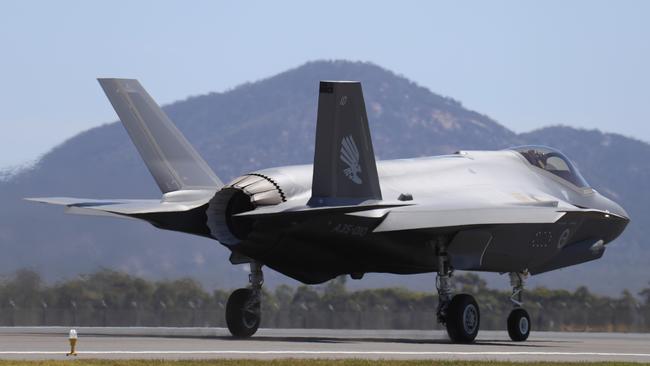
With the retirement of the Classic Hornets our entire fast jet complement is 44 Joint Strike Fighter F-35s (with one more belonging to us but still in the US), 24 Super Hornets and 11 electronic warfare Growlers. That’s just 79 fast jets for the whole of Australia. (We plan on 27 more F-35s by the end of 2023, still a tiny force for our geography).
The only new weapons the government has announced, beyond those planned many years in advance, are three categories of missiles – Tomahawks for the air warfare destroyers and Collins-class subs; extended-range JASSMs for Super Hornets and F-35s; and Long Range Anti-Ship Missiles for Super Hornets. So far, we have not received one new missile. The new JASSM-ER will eventually be fitted to the Super Hornets and the F-35s. But it cannot go inside the wing of the F-35, which loses much stealth if it carries missiles outside.
The best “missile truck” is the Super Hornet, which has a longer range than the F-35. Some 18 months ago, Scott Morrison announced, with great fanfare, that we would get LRASMs. He waxed lyrical about our ability to keep aggressors further at bay.
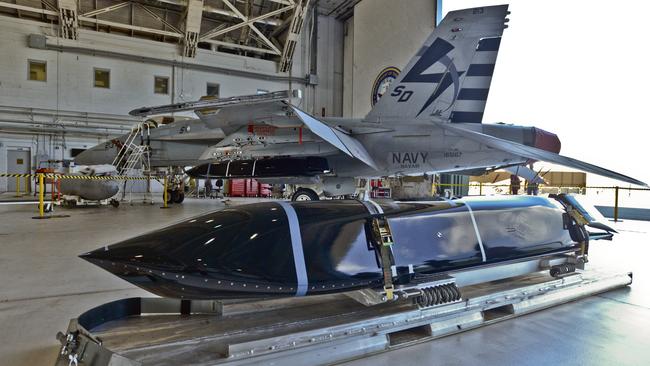
But 18 months later, we don’t have even one LRASM of the pitiful quantity of “up to 200” we plan to buy. Worse, the only aircraft scheduled to carry LRASMs is the Super Hornet, and we have precisely 24 of those.
Some 200 missiles (potentially) delivered by 24 ageing aircraft is not a serious military capability. It’s not really very much more than symbolism. You could defeat an impoverished enemy that did not have First World equipment, many platforms or much determination.
Our surface combatant fleet consists of eight small, old Anzac frigates with very little firepower and three air warfare destroyers. Our submarine fleet consists of six Collins-class submarines commissioned by Bob Hawke.
The nuclear-powered subs are so far away that they represent a long-term aspiration. They do not yet represent capability, much less strategy for the next two decades.
Campbell reminded us on Wednesday, echoing similar sentiments by Peter Dutton: “No country in history has undertaken such a broad gauge, extraordinary military modernisation over the last 30 years as China.”
The brutal contradiction of our national policy is at one level unfathomable. As one of the richest nations in the world, we are doing almost nothing to provide a relevant, sizeable, meaningful, capable defence force over the next five and 10 years. We are wasting vast sums of money in defence instead of using our, perhaps temporary, riches to provide security.
Let’s take a step back and consider this from first principles. We have foolishly convinced ourselves that there is nothing significant we can do militarily in our own defence if opposed by a super power like China. Even a Defence Minister as good and robust as Dutton keeps repeating this crippling and actually inaccurate line, which is core doctrine in the defence organisation.
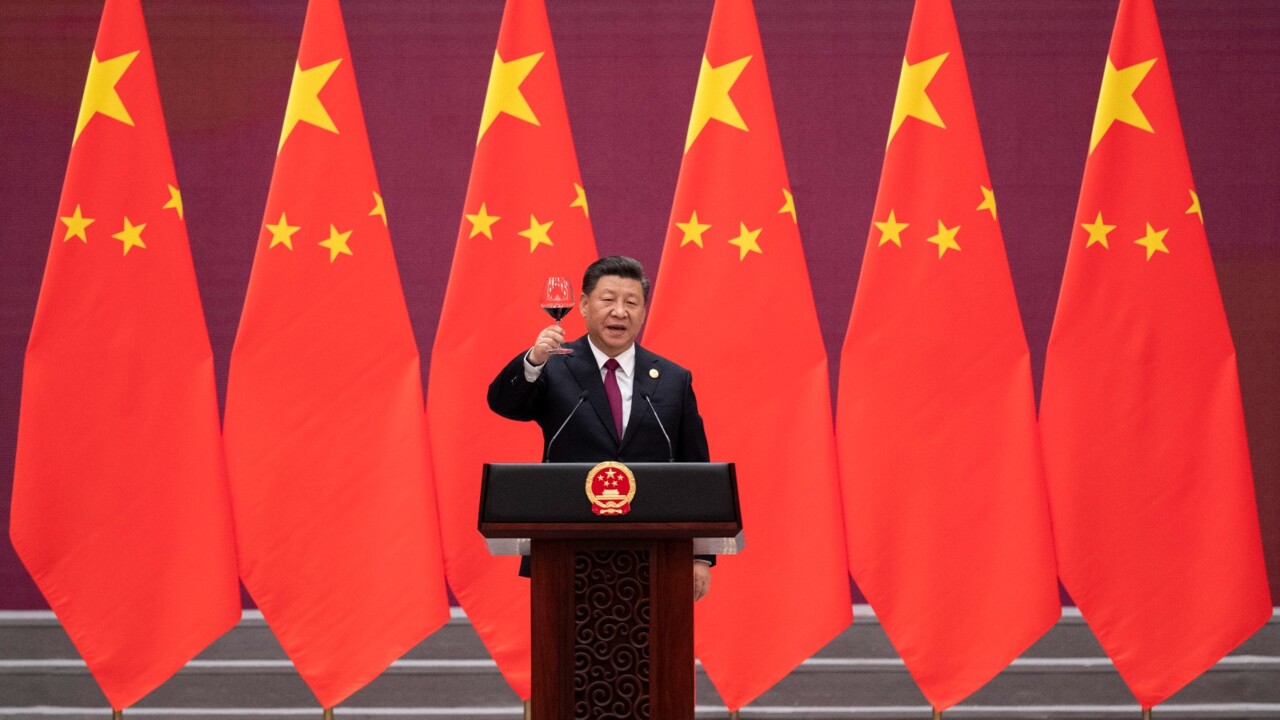
Therefore, the overwhelming priority of our defence effort is not actually military but diplomatic, to convince the Americans they must defend us. Here is a peculiar paradox of history. The Americans, as much as they complain about allies not pulling their weight, often actually encourage this mentality of learned national helplessness.
This mentality has led us to design our military with only one thing in mind: how to slot in as niche forces within US-led efforts. That worked fine in Iraq and Afghanistan. But we are now wrongly still structuring the Australian Defence Force on that wildly ill-advised basis.
The potential conflict now is between the US and China over Taiwan. Dutton is right that if China won such a confrontation, or took Taiwan without even facing effective opposition from the US, the region would be utterly transformed in a manner disastrous for Australia, with the effective collapse of the US alliance system.
History shows us that defence spending is far more effective when it’s directed at one strategic objective, such as China has designed its defence force to try gradually to make it just too costly and dangerous for the US to operate in the Western Pacific.
We should now be designing our defence force to deal with the acute maritime challenge to our security.
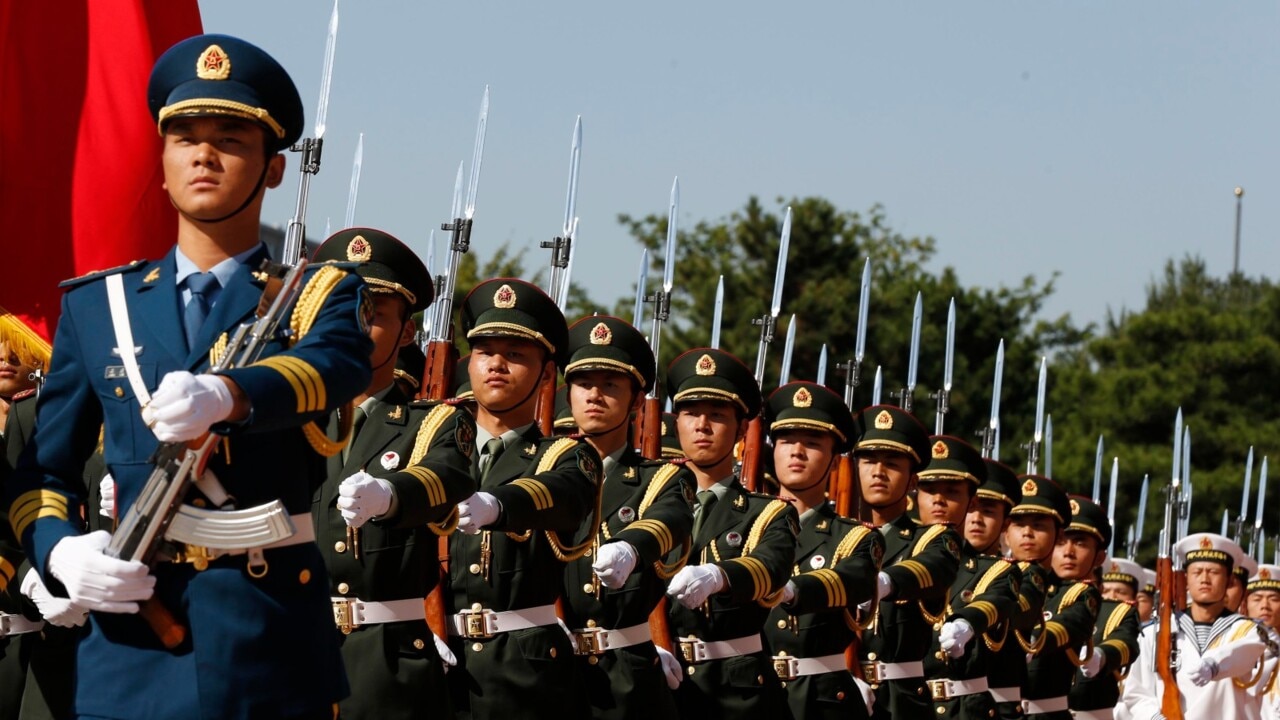
There are three reasons for this. We want to reinforce deterrence. We do that partly by our political statements – and in the field of statements we are lions – but much more with real capability.
Second, if there is a conflict, it will be of mortal significance to us and we actually want to affect the outcome, unlike Iraq and Afghanistan where we had no effect on the outcome and our contribution was political and symbolic.
And third, if the Americans do suffer a serious reverse we may find ourselves more alone than ever. Of course, even a retreating and isolationist US would still be a critical partner for us, providing intelligence, logistics, weapons systems and diplomatic support. And yes, we couldn’t defeat a superpower on our own. But we could provide a fierce deterrent capacity, the ability to bite an arm off any aggressor.
This is well within our capability if we want to do it. So far, the Morrison government has allowed the paralysing force of defence establishment inertia to prevent this. Nuclear-powered subs literally on the never-never are no substitute for action that will shape a meaningful force over the next five to 10 years.


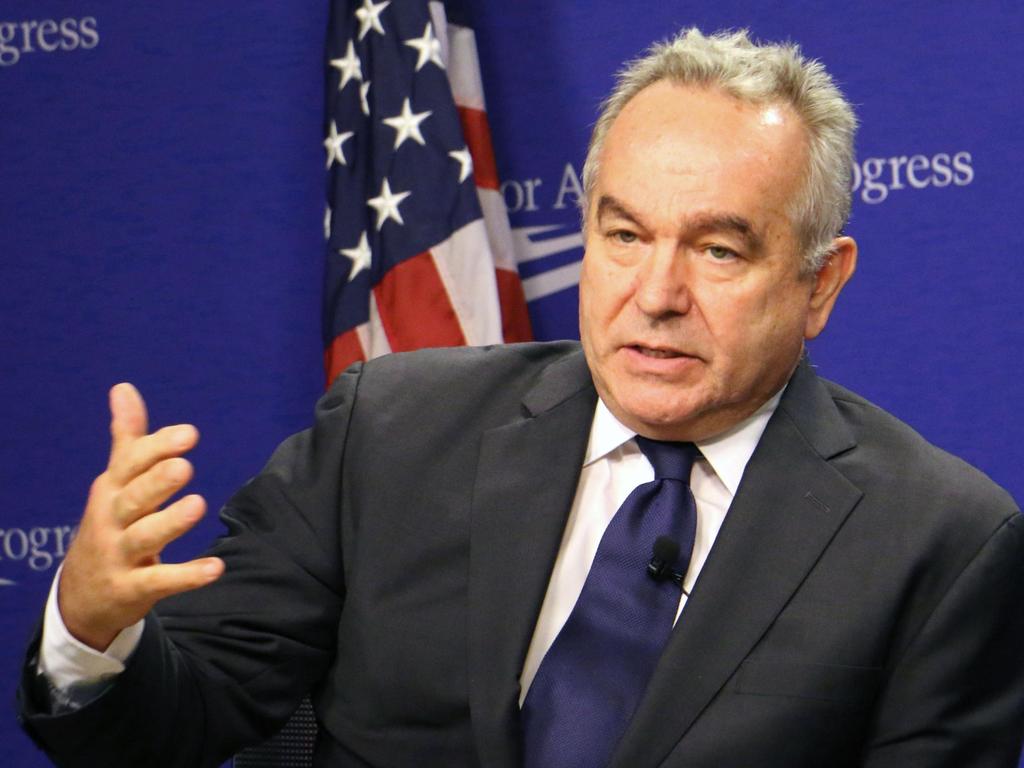
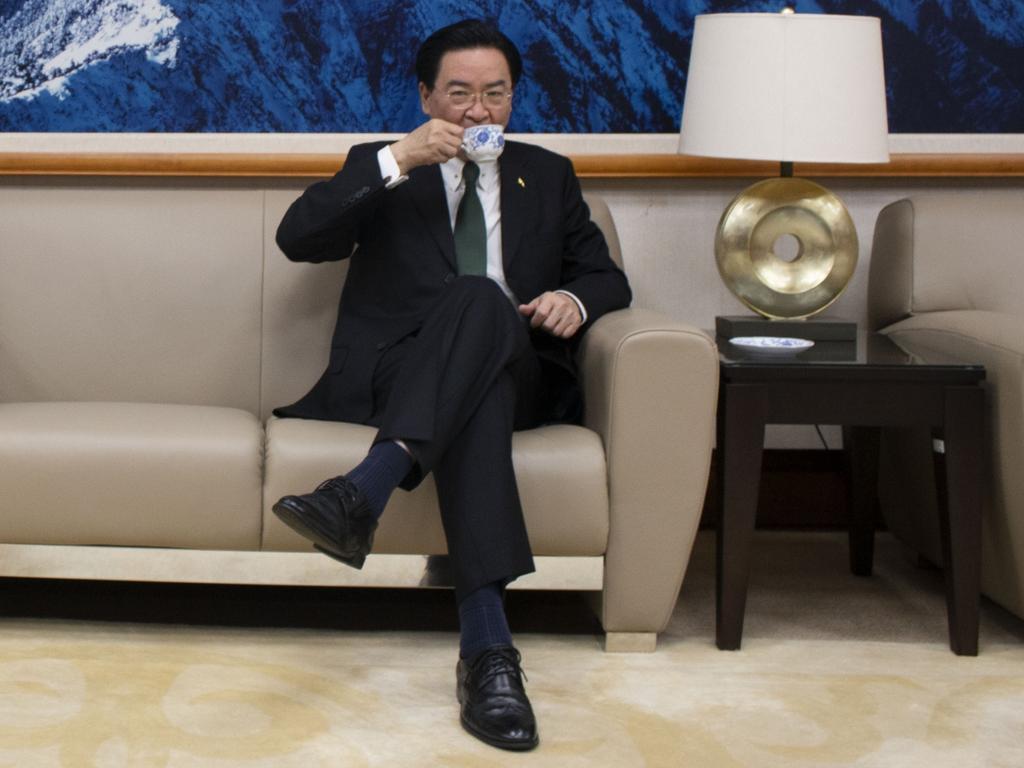
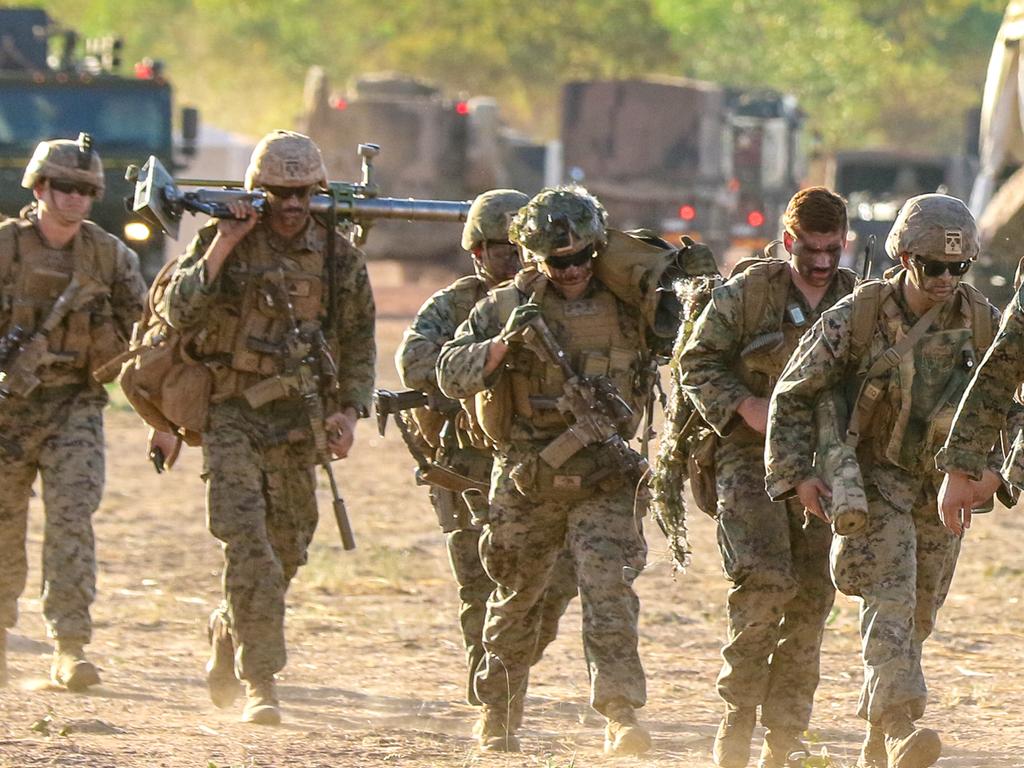
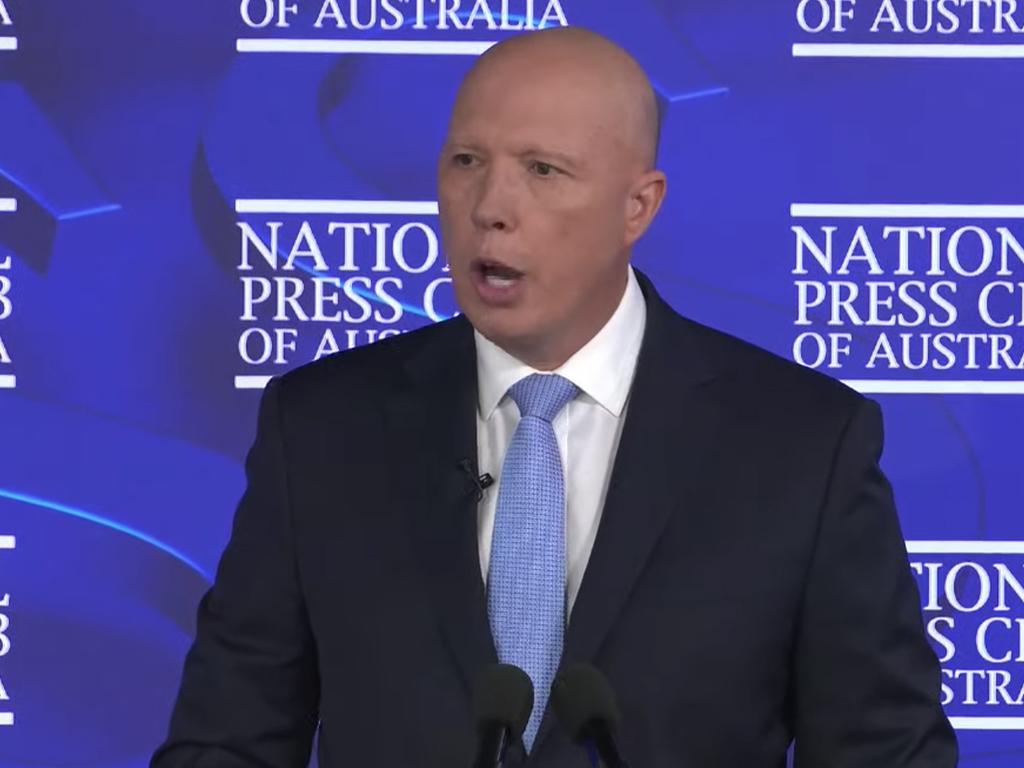


Two announcements illustrate, and exacerbate, the extreme contradiction at the heart of all Australian defence policy. The US will increase the troop numbers it rotates through northern Australia, as well as its air force, surface ship and submarine visits.